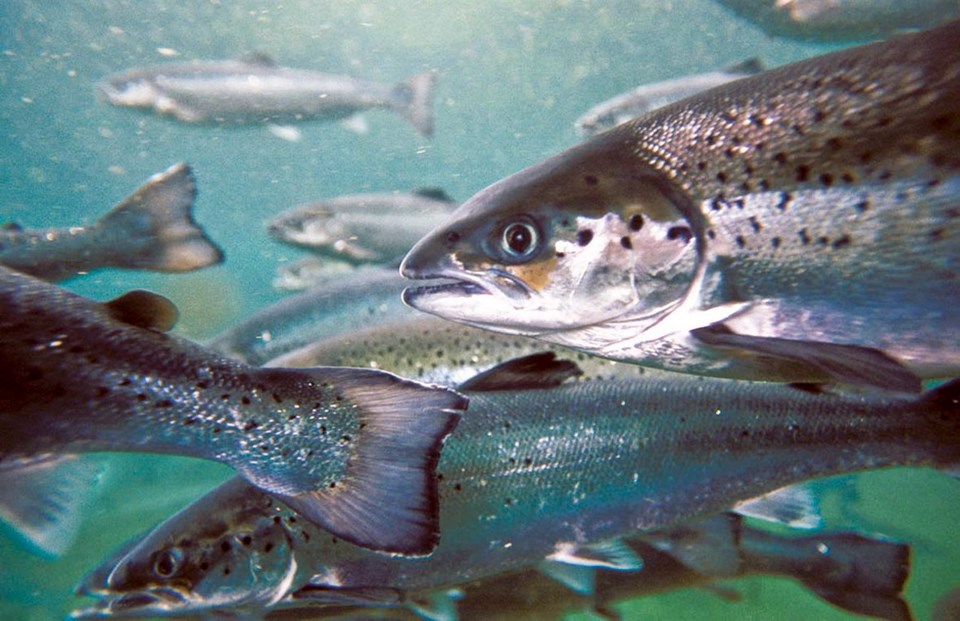Salmon farms in the Broughton Archipelago are going to get four more years to win First Nations approval of the operations, or face eviction by the B.C. government.
The much-anticipated decision on the renewal of several provincial aquaculture tenures at the north end of Vancouver Island is expected today. The government is expected to announce that provincial tenures covering 20 salmon farms, which expire today, will be renewed on a month-to-month basis for the next four years.
In June 2022, B.C. will have new requirements, sources say. First Nations’ approval will be required for the farms continued operation. That requirement will apply coast-wide from that point. B.C. will also require formal confirmation from the federal Department of Fisheries and Oceans that the open-net pens don’t endanger wild salmon.
Many farms in coastal waters already have some form of First Nations approval. But those in the Broughton Archipelago have been the subject of heated protests and confrontations for months.
> Find more on B.C.'s open-net fish farms at timescolonist.com/more
Federal tenures also expire on the 2022 date. The federal government has jurisdiction over most operational and environmental issues. The provincial authority is more limited, but still vital to the farms’ operation.
The complicated issue of what constitutes First Nations approval is not fully determined. B.C. is planning to weigh the views of the First Nation with the strongest claim in affected areas.
Premier John Horgan met with First Nations leaders opposed to the farms in Alert Bay last October and B.C. has been in government-to-government negotiations with some of them since then. Several have dropped out, but talks are ongoing with three of them and the industry is going to be invited to take part.
Today’s decision will confirm the thrust of Agriculture Minister Lana Popham’s controversial warning letter to one of the companies, Marine Harvest, last fall.
She wrote to express concern that one of the farms was being restocked at a “sensitive time” during talks with First Nations. She said the NDP government is committed to a United Nations standard requiring indigenous consent on resource issues in their claimed territories and warned the company it should make every effort to maintain healthy relationships with First Nations.
She said there were no guarantees of continued renewals of the tenures and that the company could be required to return possession of the pen sites at the end of the terms.
Popham was a strong critic of salmon farms when Horgan made her agriculture minister. The NDP campaigned on protecting wild salmon by keeping net pens away from migration routes and encouraging them to move to closed containment.
Processing the tenures is the responsibility of the Forests and Lands Ministry, but Popham is expected to make today’s announcement.
The new standards could be considered a delayed win by interests that have objected to the fish farms for years on grounds they transfer disease and parasites to wild salmon on a nearby migratory route. They will create some uncertainty about the future of the open-net pens at the north end of the Island. They represent about a third of the $1.5-billion provincial industry and employ hundreds of people directly.
Indigenous opposition in the region seems entrenched at this point. The operations have a long lead time on production decisions, so ongoing investment could be curtailed well before 2022, pending agreement.



